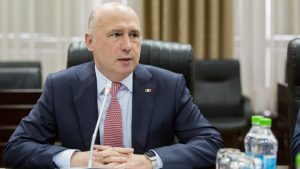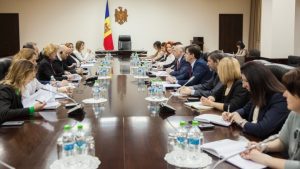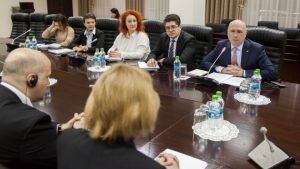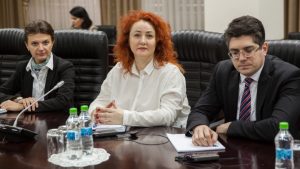ECONOMIC COUNCIL TO THE PRIME MINISTER OF THE RM
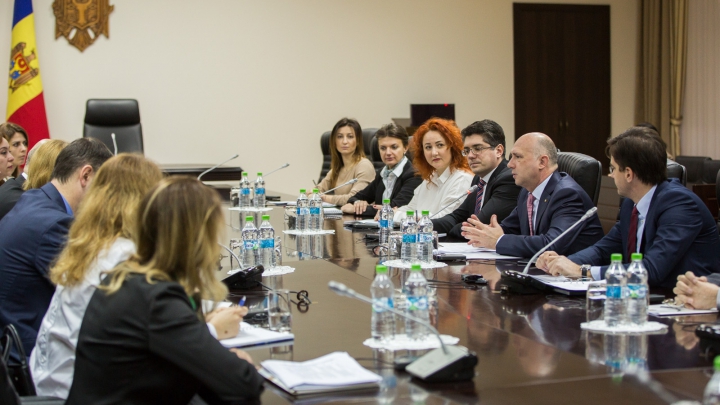
20 December 2016 – Prime Minister Pavel Filip today chaired a meeting with the members of the Secretariat of the Economic Council to the Prime Minister (EC), the chairs of the working groups created within it and the financiers of the structure. The dialogue focused on the results achieved in promoting reforms to improve the business environment and improve the investment climate, as well as on the EC’s priorities for the coming year.
During the meeting, the Head of the Cabinet of Ministers thanked the development partners for the support and confidence they have shown in the Economic Council, as well as the representatives of business associations for their active involvement in promoting reforms. “I have a special attitude towards the EC, it is the most important instrument I can use in my work. The government is open for dialogue, we just need to set priorities and move consecutively to achieve them, and the Economic Council is an effective platform for this,” Pavel Filip said.
The Prime Minister also spoke about the priorities of the Executive’s activity and the objectives achieved, including: regaining the confidence of development partners, approving the Agreement with the International Monetary Fund and resuming external financing, including from the European Union. “It has not been an easy year for the Government, just as it has not been an easy year for the business environment and citizens. However, we have managed to do several good things and I am convinced that we have started in the right direction. We need to be absolutely predictable, to have clear and stable rules to allow the business environment to develop”, Pavel Filip added.
During 2016, three permanent and several ad-hoc working groups were created within the Economic Council under the Prime Minister. Attending the meeting, the chairs of the working groups, representatives of business associations, noted that during this period, several initiatives necessary to facilitate the work of the business community were promoted and the institution became a functional one. Among the achievements were mentioned: reform of state controls and reduction of the number of permit documents, elimination of the stamp obligation, facilitation of trade, simplification of the procedure for obtaining work permits for foreigners and others.
For their part, representatives of the European Bank for Reconstruction and Development, the British Embassy in the Republic of Moldova and the World Bank, institutions that financially support the work of the EC Secretariat, appreciated the progress made in facilitating the business environment and said they would continue to support the work of the Economic Council in order to create an efficient economy that benefits citizens.
“There has been a great change in the working atmosphere, which has become one of collaboration between business associations and the authorities. We will continue to support the development of economic governance in the Republic of Moldova,” said Alex Kremer, head of the World Bank’s office in Chisinau.
At the end of the meeting, the objectives of the Economic Council under the Prime Minister for 2017 were outlined, including: further reducing the administrative burden on the business environment, drafting amendments to the Labour Code, as well as measures to combat the phenomenon of envelope wages.

The Secretariat of the Economic Council to the Prime Minister is supported by the European Bank for Reconstruction and Development, funded by the UK Government’s Good Governance Fund.


